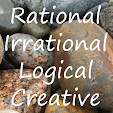NYT -
A History Department Bans Citing Wikipedia as a Research SourceWhen half a dozen students in Neil Waters’s Japanese history class at Middlebury College asserted on exams that the Jesuits supported the Shimabara Rebellion in 17th-century Japan, he knew something was wrong. The Jesuits were in “no position to aid a revolution,” he said; the few of them in Japan were in hiding.
He figured out the problem soon enough. The obscure, though incorrect, information was from Wikipedia, the collaborative online encyclopedia, and the students had picked it up cramming for his exam.
Dr. Waters and other professors in the history department had begun noticing about a year ago that students were citing Wikipedia as a source in their papers. When confronted, many would say that their high school teachers had allowed the practice.
But the errors on the Japanese history test last semester were the last straw. At Dr. Waters’s urging, the Middlebury history department notified its students this month that Wikipedia could not be cited in papers or exams, and that students could not “point to Wikipedia or any similar source that may appear in the future to escape the consequences of errors.”
Considering the fact that anybody can edit Wikipedia and Wikipedia itself includes the disclaimer that all the information it provides cannot be guaranteed to be correct, I can't see why any educated individual, especially a professor, would ever argue in favor of using Wikipedia as a valid research source. But apparently some do:
Jason Mittell, an assistant professor of American studies and film and media culture at Middlebury, said he planned to take the pro-Wikipedia side in the campus debate. “The message that is being sent is that ultimately they see it as a threat to traditional knowledge,” he said. “I see it as an opportunity. What does that mean for traditional scholarship? Does traditional scholarship lose value?”
It seems to me that it means that if student consult Wikipedia without looking any farther to actually varify the information, they are likely to end up misinformed. Isn't that one of the roles of a university, to teach students to tell the difference between accurate information and misinformation? If it isn't, it should be. If you are going to cite Wikipedia, why not just cite some guy off the street?


No comments:
Post a Comment